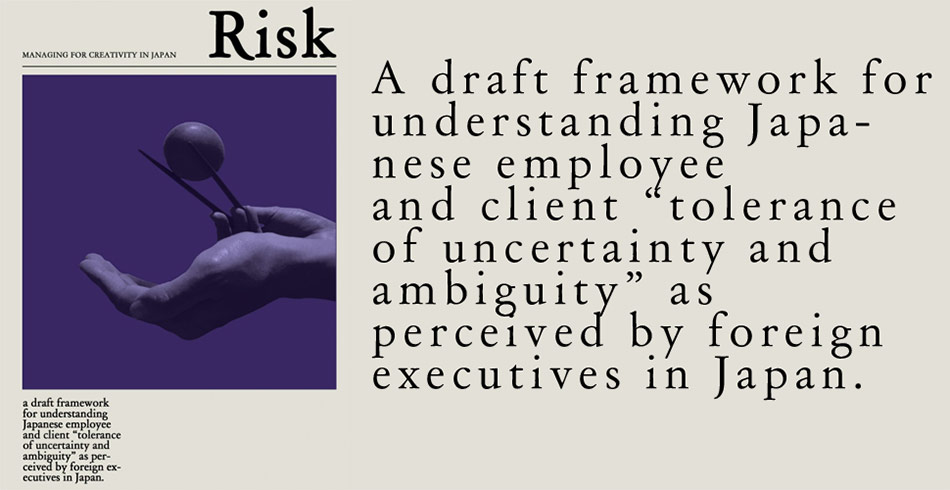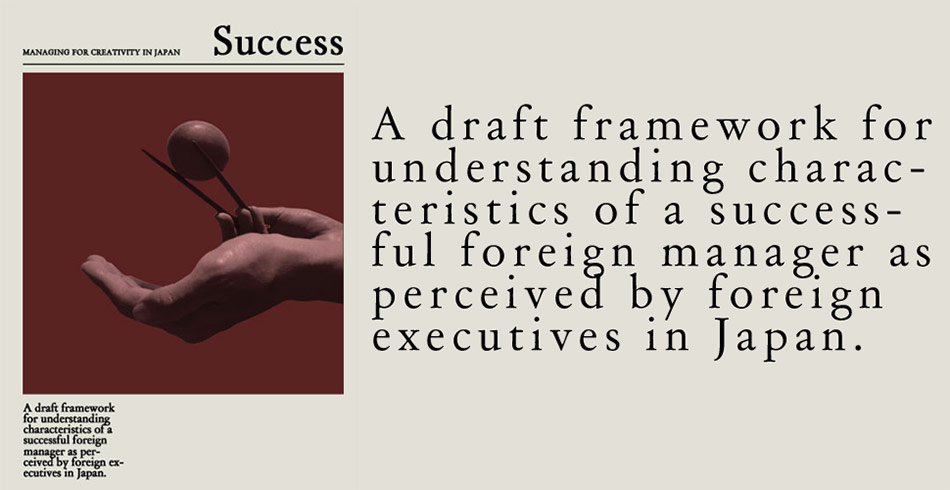“I would advise them to look upon themselves as more of a learner than a teacher; To approach their situation with humility; To become more sensitive to their environment and to work on their listening skills; To be respectful of the culture that they are working in and the values of the people that they are working with; To not impose their ways of thinking. I say this not from a moral point of view but from the point of view that if you don’t (do these things) you’ll fail.
Working in Japan is a very humbling experience for arrogant people. So if you value your success then you have to become more receptive. And believe me these would be rare characteristics among expatriates. However, just because you have to do these things and perhaps change the way you communicate and relate a little bit it doesn’t mean that your objectives become meaningless or that you are will not be able to do what you need to do. It’s just that you can’t come in with a sheet of paper and say “now, here’s our new strategy. It’s been dictated by head office and it’s what we will be doing in Japan”. It can’t be like that. It’s got to be workshopped and even though you are now a ‘sensitive new age manager’ you still need to understand when someone really is opposing you and get rid of them if necessary.
There is a mix of receptivity and sensitivity…and perhaps ruthlessness as well. The issue that can arise is that you could come over as so receptive that people think you are not prepared to wield your power, but that’s a question of judgment on your part. That’s why managers are paid high salaries, because they are able to make those calls.
Is someone being genuinely obstructive or are they simply failing to understand where you are coming from? You need to be prepared to do a lot of ‘nemawashi’ (kind of informal preparatory negotiations/discussions). If you do not prepare properly you can issue all these directives but no one will follow them and that’s often surprising for foreign managers here. I often hear things like “but I told them not to do that…I told them I didn’t want it done that way and they agreed…..and then it was done the way that we agreed we wouldn’t do it” – I hear it all the time. Of course I not saying that it is all the manager’s fault but it’s much better if you can get people to do what you need them to do of their own free will. Then, they will be very motivated and you will get a high level of performance. But you have to get that alignment – you have to listen. It’s not just a case of getting them to do what you want by speaking softly. It’s a case of really, genuinely, listening, and that’s a challenge.”

